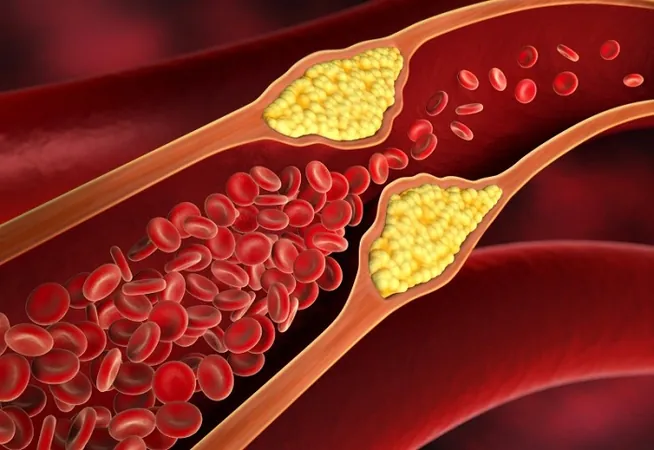
Singapore's Revolutionary Nanoparticle Technology Set to Transform Atherosclerosis Diagnosis and Treatment!
2024-09-23
Introduction
In an exciting development, a pioneering team from the National University of Singapore (NUS) Yong Loo Lin School of Medicine has unveiled a revolutionary nanoparticle technology that promises to change the landscape of diagnosing and treating atherosclerosis—one of the leading cardiovascular diseases worldwide.
Technology Overview
This innovative nanoparticle is specially designed to tackle the challenges currently plaguing conventional methods, making it a game-changer in cardiorespiratory health. By not only diagnosing but also targeting atherosclerotic plaques, this technology delivers therapeutic agents to combat the disease effectively and non-invasively.
Composition and Mechanism
The secret behind this groundbreaking solution lies in its composition. The nanoparticles are made from nanoscale coordination polymers (NCP) and utilize a pH-responsive linker that activates under the acidic conditions of atherosclerotic plaques. Once in the right environment, they release gadolinium, a contrast agent used in MRI, enabling real-time imaging to assess plaque severity. Simultaneously, these nanoparticles deliver Simvastatin—a powerful water-insoluble drug known for its anti-inflammatory properties and ability to combat reactive oxygen species (ROS), key contributors to plaque development. This dual action not only helps stabilize existing plaques but also lowers the risk of serious cardiovascular events.
Enhanced Therapeutic Delivery
Remarkably, the nanoparticles can deliver up to 1000 times more Simvastatin directly to the plaques compared to traditional systemic delivery methods. This capability enhances therapeutic effectiveness while significantly reducing systemic side effects, a major breakthrough in patient safety.
Expert Insights
Asst Prof Wang, the Principal Investigator of the Nanomedicine Translational Research Programme at NUS Medicine, stated, “Overall, our nanoparticles offer a promising novel approach to non-invasive diagnosis, monitoring, and targeted treatment of atherosclerosis. This significant advancement could pave the way for a new era of cardiovascular care.”
Future Directions
This study, though currently in its proof-of-concept stage, showcases immense potential, and researchers are eager to validate these findings further before moving on to clinical trials. If successful, this technology could not only lead to the reduction of atherosclerosis-related health complications but also signify a leap forward in personalized medicine, where treatments are tailored to individuals' specific conditions.
Conclusion
Stay tuned as Singapore's innovative minds continue to push the boundaries of medical science!

 Brasil (PT)
Brasil (PT)
 Canada (EN)
Canada (EN)
 Chile (ES)
Chile (ES)
 España (ES)
España (ES)
 France (FR)
France (FR)
 Hong Kong (EN)
Hong Kong (EN)
 Italia (IT)
Italia (IT)
 日本 (JA)
日本 (JA)
 Magyarország (HU)
Magyarország (HU)
 Norge (NO)
Norge (NO)
 Polska (PL)
Polska (PL)
 Schweiz (DE)
Schweiz (DE)
 Singapore (EN)
Singapore (EN)
 Sverige (SV)
Sverige (SV)
 Suomi (FI)
Suomi (FI)
 Türkiye (TR)
Türkiye (TR)